 Torture is back in the news, big-time, with the release of Bush Administration memos about torture. Obama says that all of this information has already been publicly available, and he’s right. I’ve been reading this stuff for years. Numerous books are available in bookstores (Bob Woodward wrote four books on the subject of “Bush at War”). In the material now being released, I’m seeing very little that is new to me.
Torture is back in the news, big-time, with the release of Bush Administration memos about torture. Obama says that all of this information has already been publicly available, and he’s right. I’ve been reading this stuff for years. Numerous books are available in bookstores (Bob Woodward wrote four books on the subject of “Bush at War”). In the material now being released, I’m seeing very little that is new to me.
If you’d really like to understand what happened–how the United States backtracked on its ideals and embraced the torture of prisoners–I suggest that you read Jane Mayer’s book “The Dark Side,” an amazing piece of reporting. Mayer is a former Wall Street Journal reporter who, since 1995, has been a contributor to the New Yorker, which to me consistently turns out the best reporting you’ll find anywhere. And New Yorker articles are subjected to their legendary fact-checking department (the acclaimed John McPhee recently wrote about his battles with–and respect for–the unforgiving, relentless, resourceful fact-checkers to whom he regularly submitted all his notes).
This subject will remain with us for a long time. So if you want to truly understand the subject–the context, details, timelines, etc.–you can’t rely on shallow five-minute segments of TV punditry.
Mayer’s book makes use of the numerous studies and investigations done by the military, congress, and other groups. Plus, plenty of original reporting.
There are many heroes in the book, people who opposed our use of torture and tried to stop it. The FBI emerges with its image clean. They had a great deal of success interviewing prisoners, and did it by the book with the goal of prosecuting. Abu Zubaydah was talking freely to them, and his information was proving accurate. But time after time, the CIA swooped in to take control of the person, sending him to Egypt to be tortured or to a secret facility–at which point the terrorist quit cooperating. Plus, the CIA had no interest in prosecuting–they only wanted information, so methods didn’t matter. And thus, we have the mess we have today. If we had left interrogation to the FBI, we would not only have gained information, but would have been able to prosecute these terrorists. Now, we have a bunch of prisoners, many of them very bad people, who can’t be prosecuted because we tortured them. Plus, damaging information about many of them was gained by torturing other people, so that info is inadmissible. This is the mess Obama inherited.
Mayer’s book goes back to the beginning, to 9/11, and reveals how the whole detention and torture program developed. We meet a variety of principled people within the FBI, the CIA, Congress, the Administration, the Justice Department, and the military. At one point, the JAGs (Judge Advocate Generals) of every armed service jointly opposed a torture initiative. Condi Rice and John Ashcroft have their shining moments (mixed in with some not-so-shining moments).
But in the end, in almost every case, they were unable to challenge the power of Dick Cheney and his merciless chief of staff, David Addington. Any opposition was snuffed out in the Vice President’s office.
As the book shows, almost everything related to torture and detention went through Dick Cheney’s office. His people (or the people he controlled, like John Yoo) wrote the legal opinions, which he persuaded President Bush to sign. David Addington seems to appear on every other page, and was instrumental in writing some of the legal opinions upon which torture was authorized (opinions considered horribly shoddy by numerous people in the book). Addington, the hardest of hardball players, was the face of the VP’s office, and he ran roughshod over the president’s lawyer, Alberto Gonzales.
President Bush is practically missing from the book. Yes, he signed executive orders. But invariably, those orders were written by Dick Cheney’s office. Cheney, the book shows, liked to manipulatively play off the President’s self-image as a decider. “This is a tough decision, and only you can make it, Mr. President.”
“The Dark Side” is not a partisan book (like, for instance, one written by Dick Morris or Ann Coulter or any number of other professional pundits). Mayer is a top-notch reporter, and her book illuminates one of the saddest stories in our history–the betrayal of basic American ideals. It’s the best book I’ve read this year, and I can’t recommend it enough. It will deeply sadden and disturb you, but it will also give you hope, knowing that many good, principled people serve throughout our government and armed forces.
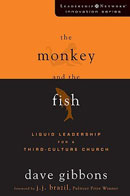 I wrote a review of David Gibbons’s book “The Monkey and the Fish” on the BishopBlog, to which I’m a contributor. It’s a book I highly recommend. Not your typical church growth book. He hits some areas that progressive evangelicals will appreciate, and that more traditional evangelicals need to become better attuned to.
I wrote a review of David Gibbons’s book “The Monkey and the Fish” on the BishopBlog, to which I’m a contributor. It’s a book I highly recommend. Not your typical church growth book. He hits some areas that progressive evangelicals will appreciate, and that more traditional evangelicals need to become better attuned to.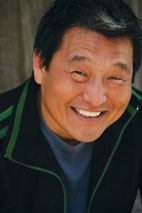 Gibbons (left) mentions an interesting study. People were shown three pictures: a chicken, a cow, and a bale of hay. Which two pictures were more alike?
Gibbons (left) mentions an interesting study. People were shown three pictures: a chicken, a cow, and a bale of hay. Which two pictures were more alike?

 Finally, a Lee Child book that disappointed me. It was still a fun read, and I learned much more about the character of Jack Reacher. But “Running Blind” lacked the action of the other three Reacher novels I read.
Finally, a Lee Child book that disappointed me. It was still a fun read, and I learned much more about the character of Jack Reacher. But “Running Blind” lacked the action of the other three Reacher novels I read.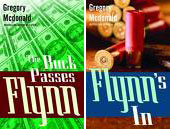
 This mystery, by John Lawton, is set in London during WW2. As the city undergoes regular bombing, our intrepid policeman, Inspector Frederick Troy, tries to catch what appears to be a serial killer with ties to the American military.
This mystery, by John Lawton, is set in London during WW2. As the city undergoes regular bombing, our intrepid policeman, Inspector Frederick Troy, tries to catch what appears to be a serial killer with ties to the American military.
 Torture is back in the news, big-time, with the release of Bush Administration memos about torture. Obama says that all of this information has already been publicly available, and he’s right. I’ve been reading this stuff for years. Numerous books are available in bookstores (Bob Woodward wrote four books on the subject of “Bush at War”). In the material now being released, I’m seeing very little that is new to me.
Torture is back in the news, big-time, with the release of Bush Administration memos about torture. Obama says that all of this information has already been publicly available, and he’s right. I’ve been reading this stuff for years. Numerous books are available in bookstores (Bob Woodward wrote four books on the subject of “Bush at War”). In the material now being released, I’m seeing very little that is new to me. 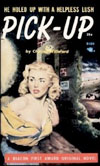 This book seemed so-so right up until the last two sentences, when it blew me away.
This book seemed so-so right up until the last two sentences, when it blew me away.
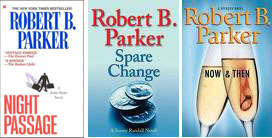 During the past week I finished three Robert Parker novels. I can make pretty quick work of his books. They’re short, fast-paced, and interesting.
During the past week I finished three Robert Parker novels. I can make pretty quick work of his books. They’re short, fast-paced, and interesting.




